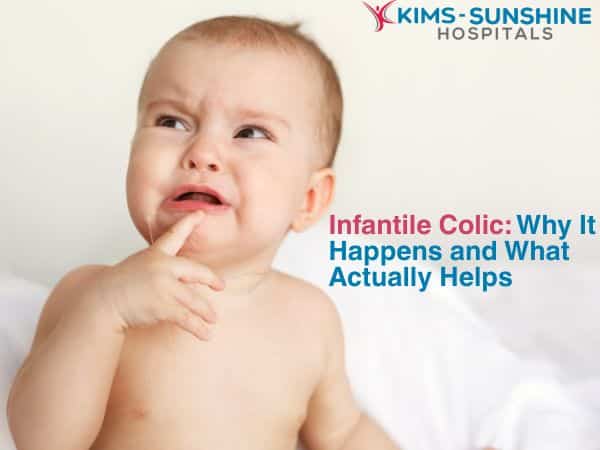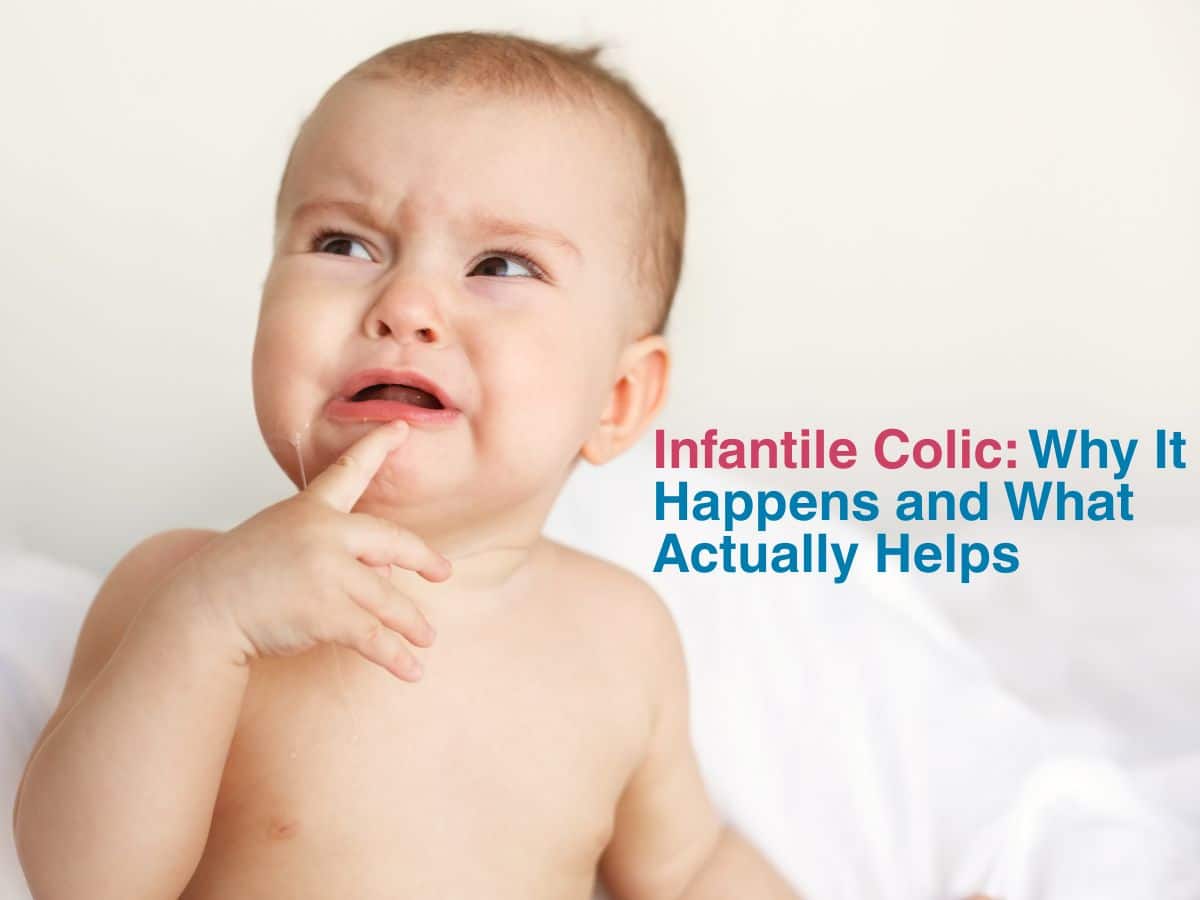
Infantile Colic: Why It Happens and What Actually Helps
 Infantile colic is a condition where a baby cries inconsolably for way longer than 3 hours per day, for at least 3 months. No apparent reason can be attributed to all the sobbing- because the baby may be healthy in every aspect, will feed normally and will be good at other times. This increased fussiness can be hard to deal with as it can be frustrating for parents too. Colic episodes begin to manifest when the baby is around 6 months of age, but they go away on their own once the baby is 4-6 months old. The only way to survive this trying period is to remain confident in your own abilities as a parent and to find different ways to soothe the baby and yourself.
Infantile colic is a condition where a baby cries inconsolably for way longer than 3 hours per day, for at least 3 months. No apparent reason can be attributed to all the sobbing- because the baby may be healthy in every aspect, will feed normally and will be good at other times. This increased fussiness can be hard to deal with as it can be frustrating for parents too. Colic episodes begin to manifest when the baby is around 6 months of age, but they go away on their own once the baby is 4-6 months old. The only way to survive this trying period is to remain confident in your own abilities as a parent and to find different ways to soothe the baby and yourself.
What Causes Colic In Newborns?
Crying or fussiness in babies when they have been fed, changed and have slept well can seem strange and even unwanted, but this is what happens when they are colicky. There is no single reason as to why they begin to cry or fuss and seem inconsolable, but such babies generally begin to feel better once they fart or poop. Reflux or swallowing too much air has been attributed to be the primary causes for colic, though no one is exactly sure why it happens. Exposure to certain allergens from formula or breastmilk can trigger colic in babies.
Signs Of Colic vs. Normal Crying-
New parents may be astonished at the amount of difference there is when the baby cries at different points in a day. Parents eventually begin to respond and understand why the baby is crying- is it for food, is it because they are hungry, if they need a diaper change or if they are in pain. But, if your baby is colicky and is crying and fussy often, then it may be hard for you to differentiate between the two.
- Colicky babies generally tend to cry in the evening or at fixed times in a day, everyday.
- They may cry when they feel too gassy
- Babies normally calm down if you console them, but if they refuse to feel better, then they may be colicky. Then the only thing you can do is wait for it to pass and be patient with yourself and the baby.
- Your baby has a hard stomach or grimaces a lot – then they may be colicky.
Best Position To Relieve Colic In Babies-
Babies cry all the time and parents normally know why they do so. But, with colicky babies, it can be harder. One of the ways in which you can soothe your baby can include holding them upright while feeding, so that they don’t swallow too much air. If you bottle feed them, then you can make sure that you take the bottle away when the milk is near the bottom. You can also give them smaller amounts of formula or milk and help burp them immediately. The football hold is considered a good one for most colicky babies as they seem to calm down. But, for others- it may be songs, white noise, gentle rocking etc. So, you will need to see what works after trying the whole gamut of options.
Conclusion
A colicky baby can be a nightmare to deal with for parents- as the baby may seem healthy and fine but may still cry a lot and be inconsolable. This can be hard on mothers and primary caregivers at home as they begin to blame themselves, even if it is not their fault. Colic generally lasts till babies turn 4-6 months of age, after which the symptoms begin to ease up. Stay strong, give yourself plenty of grace and understand that it is not your fault at all. Some babies are colicky while others aren’t and so, don’t worry too much. If you however notice other symptoms like blood in the poop or green coloured puke, then don’t waste time looking for other options and instead get your baby checked immediately.






